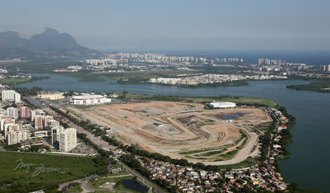This post focuses on the major influence that sports mega-events have in the urban environment nowadays. The thesis mentioned here makes an analysis of these sports mega-events (in this case the Olympics in Rio in 2016) as main tools for accelerating and deepening neoliberal urban development. The research focuses on how the developments related to the Olympics affect informal settlements in Rio, through a process of accumulation by dispossession.
Abstract
The theoretical framework of accumulation by dispossession allows for a critical examination of urban development projects within neoliberalism (Harvey, 2009; Swyngedouw, Moulaert & Rodriguez, 2002). Within the same neoliberal paradigm, sports mega-events have come to play a significant role for urban regeneration and policy-making (Hall, 2006). Meanwhile attending to the well-documented cases of mass-evictions and reduction of standard housing rights as a recurrent consequence of cities hosting such events (Blunden, 2012), we believe that such a critical examination is arguably important in order to do justice to these kinds of urban regeneration projects. In this paper we analyse, by a case study approach, how mega-events amplify and accelerate the process of accumulation by dispossession. We attend to the development of the Olympic Park and Olympic Village, Barra da Tijuca, in preparation for the Rio 2016 Games, as well as the neighbouring community of Vila Autódromo. By analyzing different types of source material, we discuss how the mechanisms of privatisation and entrepreneurialism are reflected in our case; understood as two important mechanisms that facilitate the process of accumulation by dispossession (Harvey, 2009).














